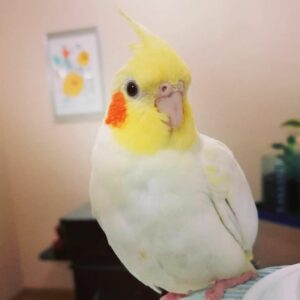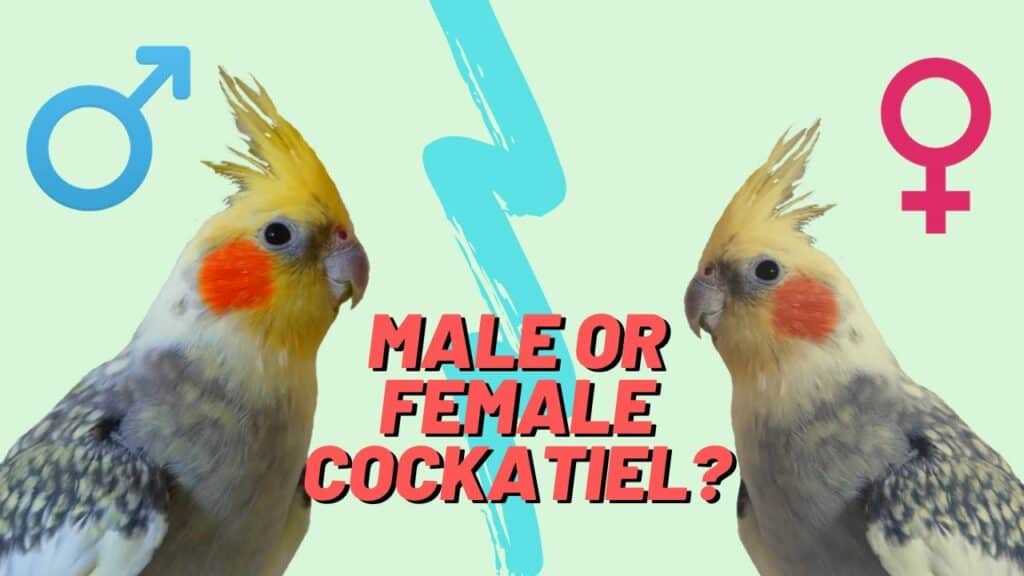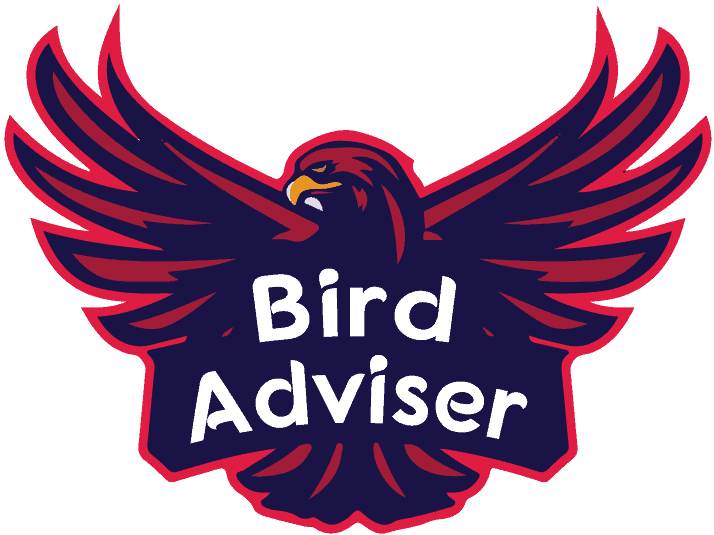A very basic question that every pet owner would ask before owning a particular pet is that whether or not the creature is loud or noisy. It is one of the most common questions to be asked.
The given article explores the same topic. It not only explains the sounds and noises that a Cockatiel produces but also indicates the possible ways in which the bird can be made quiet.
Let’s discuss the topics extensively.

Are Cockatiels Loud?
Yes, Cockatiels are loud. Cockatiels sound level can reach up to 80 decibels, but the noise level depends on the person. Some might feel that it is loud and some might feel it’s not loud.
Can Cockatiels be labeled as Loud?
Whether or not Cockatiel can be labeled as a loud bird depends on individual listeners. While you might consider your pet to be a quiet and obedient bird, your next-door neighbor could be going nuts about its noise!
Despite this variety of opinions, Cockatiels are generally considered talkative and expressive birds. They do communicate a lot. They can be considered loud when compared to other parrots.
What Sounds Do Cockatiels Produce?
Cockatiels tend to produce a number of different sounds for different indicative signals. Generally, it will use its sound types throughout the day.
When it is happy, sad, emotional, lonely, angry or frightened, it will show by speaking it out.
Given below are a number of sounds that a Cockatiel produces.
1. Chirping
When the Cockatiel is happy and relaxed it will chirp. This chirping sound is light and soft-toned bird voice. It denotes the good mood of the bird.
2. Hissing
If your Cockatiel detects a threat from its surrounding, it will respond by producing hissing sounds. This is Cockatiel’s way of expressing fear as well as vigilance. The hissing is not completely snaked-like but partially similar to it. This sound can be particularly annoying for some people.
3. Screams of Emergency
In case the Cockatiel finds itself in a situation where something is wrong, it is expected to scream loudly. This loud noise is for grabbing the attention of the owner. This sound will be extremely loud. It will be distinct from all the other sounds.
4. Mating Sound
One thing that should be kept in mind before getting yourself a Cockatiel is that these birds are particularly noisy during the mating season. They become more and energetic. Their communication paces up and suddenly your normally quiet bird can become an active speaker.
5. Males During Mating Season
If at all you still want to get one, you must be ready for and extra noise that the hyperactive male birds will make during the mating period. The males feel the need to entice the ladies by putting on performances, acts, and shows. They become extra talkative.
6. Females During Mating Season
The females do not take the mating season as seriously as the male Cockatiels. They do chirp and sing but remain otherwise less noisy.
Since they do not have to put in extra effort to attract the males, they remain quiet and maintain their aura. However, sometimes, when it feels like giving a mating call to a male, it says ‘coo’. This is a special vocal sound produced by the bird. Even you might get surprised that the coo sound is actually coming from the bird.
Male vs Female Cockatiels under Normal Conditions
Under normal circumstances, the female Cockatiel remains particularly silent. It’s not that it does not express its feelings and emotions verbally. The thing is that this is just how they are built. The females do not really like to chatter excessively.

If the noisiness of your bird something that you cannot tolerate, you must go for a female Cockatiel. The females are rather more silent than the male of their family. Despite this benefit, many people still choose to get their self-male Cockatiels.
During the mating season, Cockatiels become obviously loud. They chirp and sing. Especially, the males are hyperactive during this time. They talk and try to amuse the females. Therefore, during this particular season, the Cockatiels really are noisy.
How to Get Cockatiel to be Quiet?
If you have decided on buying a Cockatiel as a pet but you hear that it will create too much noise in your house, you can ease your fears by reading this particular topic.
The first and most important thing you should explore is the cause of the bird’s noise. The bird talks to humans but in a bird language. Hence it is a requirement to page close attention to the Cockatiel and try to decipher its word’s behavior and actions.
Get yourself a young one!
The only effective way of shushing down your Cockatiel is training it or taming it. You can teach it to remain a quiet buddy for you. For this purpose, the bird that you are selecting should be a young one.
The reason for this choice is that a young Cockatiel can be trained easily. It will learn quickly and implement effectively. The bird will be new to you so it will not have to unlearn its previous behaviors, simply because it won’t have any.
Conclusion
The above article, therefore, explains that the Cockatiels are loud and talkative. But no other bird is quiet either. Every one of them speaks and creates some kind of unique voice. Though, some people prefer to stay in a quiet room (in a peaceful, calm and noise-free environment.)
But they have to manage a little chirping and screaming here and there. If they absolutely cannot, then they must start bird training in order to get it quieter.
FAQ
1. Are Cockatiels Noisy?
These birds can make various different sounds and the most annoying of these is its contact call towards the humans because it is shrill and loud and can get irritating sometimes.
2. Is a Cockatiel loud all the time?
Cockatiels can be considered noisy birds. They enjoy making sounds and search for frequent reasons to make themselves heard. Moreover, two favorite times of a Cockatiel to vocalize loudly are in the early morning and around its bedtime at night.
Last Updated on March 22, 2023 by Lily Aldrin
